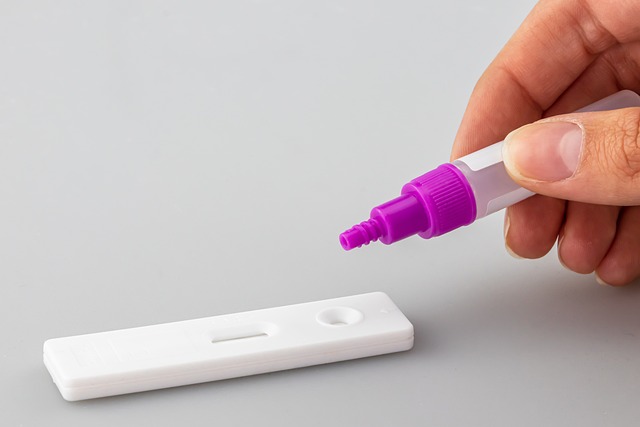The Standard Liver Blood Test (SLBT) in the UK is a vital diagnostic tool for evaluating liver health and managing iron deficiency anaemia. By assessing enzymes, proteins, and other substances, it detects abnormalities indicating potential liver damage or nutritional deficiencies. Early detection allows for timely interventions, such as dietary adjustments and supplementation, to improve liver function and prevent complications from anaemia. Regular monitoring through follow-up SLBTs is crucial for effective treatment management.
- Understanding Iron Deficiency Anemia and Its Symptoms
- The Role of Standard Liver Blood Test UK in Diagnosis
- Monitoring and Management After Detection
Understanding Iron Deficiency Anemia and Its Symptoms
The Role of Standard Liver Blood Test UK in Diagnosis
The Standard Liver Blood Test (SLBT) in the UK plays a crucial role in diagnosing iron deficiency anaemia. This test assesses liver function and provides valuable insights into potential underlying causes, including nutritional deficiencies like iron depletion. By measuring various enzymes and proteins, such as alanine aminotransferase (ALT), aspartate aminotransferase (AST), and total bilirubin, the SLBT helps identify abnormalities indicative of anaemia or liver-related issues.
In the context of iron deficiency, elevated levels of certain enzymes might suggest impaired liver function associated with anaemia. For instance, increased ALT and AST levels can signal cellular damage, often linked to inflammation or oxidative stress caused by low iron stores. The SLBT, therefore, serves as a gateway to further investigations, enabling healthcare professionals to tailor treatments effectively and address the underlying iron deficiency.
Monitoring and Management After Detection
After iron deficiency anemia is detected through a blood test, such as a standard liver blood test (SLBT) in the UK, monitoring and management are crucial steps. Healthcare professionals often recommend regular follow-up tests to track the patient’s hemoglobin levels and iron stores. This proactive approach ensures that treatment is effective and any changes in the condition are identified early.
Management strategies typically involve dietary adjustments, such as increasing the intake of iron-rich foods, and in some cases, supplementation. The SLBT can also be used to monitor the effectiveness of these interventions, helping doctors adjust treatment plans accordingly. Regular monitoring not only maintains optimal health but also reduces the risk of complications associated with prolonged anemia.
Iron deficiency anemia is a common yet preventable condition, and early detection through a Standard Liver Blood Test UK can be a game-changer. By understanding its symptoms and utilizing this essential diagnostic tool, individuals can ensure timely management and treatment. This simple blood test plays a crucial role in navigating the path to better health, enabling medical professionals to identify and address iron deficiency anemia effectively.
